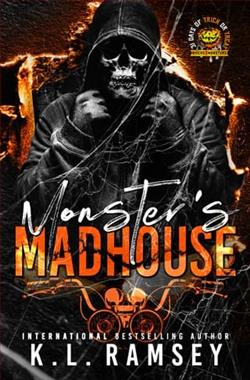Page 72 of Cold as Hell
“But if someone did frame Sebastian because they knew he’s a sociopath, they might not realize that.”
“They likely would not. Or, even if they did understand the difference, would they expectyouto know it? Or would you see evidence pointing to a sociopath and close the case?”
“So what are we looking for?”
He sighs and leans back in his chair. “Are you looking for me to play profiler, Casey? It is a game for fools and Hollywood detectives.”
“I know profiling isn’t the science we wanted to think it was. You can’t tell me I’m looking for a white male between the ages of twenty-five and thirty-four.”
His lips quirk. “But you probably are, as that is a simple matter of statistics. Yes, I can give you some insight into the mindof someone who might do such a thing. Just do not take it as gospel.”
“I won’t.”
Mathias tells me what he can. He’s right that profiling isn’t what we see in the movies. There can be value in it, but the way it’s portrayed makes it seem like hard science.
We can’t only blame Hollywood either. Hollywood seized on an idea that was already popular in law enforcement. What if you could take crimes and extrapolate backward to come up with a profile of the killer? That works best if you’re saying that the person who killed Lynn is a sadist and getting clues about their personality from that. It does not work well if you decide that the method of her murder is symbolic and suggests they grew up with maternal attachment issues and felt “left out in the cold” by their mother.
As for things like “white male between twenty-five and thirty-four,” as Mathias said, that’s just statistics. It’s like saying that someone committing a sexual assault is probably male. Probably, yes. Absolutely? No.
The most important thing Mathias tells me is that this is unlikely to be a first offense. You don’t start with something this horrific. It’s probably not even a valid jump from “tortured small animals as a child” to this.
If this is pure sadism, we’re looking for a serial killer, at least in the sense of someone who has killed before.
Here is yet another problem we’re discovering in Haven’s Rock. Just because there’s no record—or even suspicion—of a resident having committed violent crimes does not mean they’ve never done it.
What’s the chance that, in our first batch of residents, we’ve let in a serial killer with no police record? One who has never even been questioned in connection with violent crimes? It must be exceptionally low. My vengeance theory makes more sense.
Mathias walks out with me. Then he continues on to the coffee shop while I stop to say a quick goodbye to Nicole as she passes with Stephen. Finally, I start making my way toward the hangar, presuming Dalton will be there with Storm and our luggage.
Shit. I wanted to ask Mathias something else.
I turn to see him in the distance. He’s bundled up, but I pick him out easily from the others. He’s a slight man, not terribly tall, walking with purpose…
I slow as I watch him. A slight man below average height. A man I believe has a history of enacting vicious punishments he considers justified.
“Detective Casey?” a voice says, and I turn to see Carson walking toward me.
I force myself to shift mental gears. “Hey, I heard you guys were playing a board game. How’d it go?”
The boy shrugs. “I got bored and let myself lose.” He motions down, and I see Raoul tagging along. “I said I was taking the dog for a walk.” He looks back at me. “Do you have a sec? Before you leave? There’s something…” He shrugs again, now in a way that suggests he’s uncomfortable. The language of a teenager—every shrug and grunt and eye roll having its own meaning.
“Something you need to speak to me about?”
Another shrug. “Maybe? It’s probably nothing, but if you leave, and I don’t say anything?” He glances away. “I’d rather not do that again.”
When Max went missing, his brother had withheld details, not for long, but enough that his teenage ennui had fallen away to reveal the young man under it, panicked and guilt-stricken.
“Sure, let’s pop into the town hall. I should sit for a minute anyway.”
CHAPTER TWENTY-THREE
“I was outside during the storm,” Carson says, even before we get our boots off. “I snuck out. That’s why I didn’t say anything earlier.” He pauses. “If I had information that was definitely useful, I’d have come forward. But since it didn’t seem useful, there was no point getting in trouble.”
I lead him to the chairs, and we both sit.
He continues, “I’m still not sure it’s useful, but I feel like I need to say something, and if I catch shit, then I catch shit.”
“While I can’t guarantee your mother won’t find out,” I say, “I see no reason at this point to tell her.”















